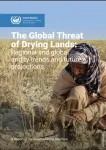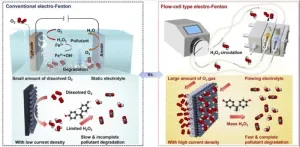(Press-News.org) A pioneering Artificial Intelligence (AI) powered model able to understand the sequences and structure patterns that make up the genetic “language” of plants, has been launched by a research collaboration.
Plant RNA-FM, believed to be the first AI model of its kind, has been developed by a collaboration between plant researchers at the John Innes Centre and computer scientists at the University of Exeter.
The model, say its creators, is a smart technological breakthrough that can drive discovery and innovation in plant science and potentially across the study of invertebrates and bacteria.
RNA, like its better-known chemical relative DNA, is an important molecule throughout all organisms, responsible for carrying genetic information in its sequences and structures. In the genome RNA architecture is made up of combinations of building blocks called nucleotides, which are arranged in patterns in the same way that the alphabet combines to make words and phrases in language.
Professor Yiliang Ding’s group at the John Innes Centre studies RNA structure, one of the key languages in RNA molecules where RNAs can fold into complex structures that regulate sophisticated biological functions such as plant growth and stress response.
To better understand the complex language of RNA in its functions, Professor Ding’s group collaborated with Dr Ke Li’s group in the University of Exeter.
Together they developed PlantRNA-FM, a model trained on an enormous data set of 54 billion pieces of RNA information that make up a genetic alphabet across 1,124 plant species.
When creating PlantRNA-FM the researchers followed the methodology in which AI models such as ChatGPT are trained to understand human language. The AI model was taught the plant-based language by studying RNA information from plant species worldwide, to give it a comprehensive view of how RNA works across the plant kingdom.
Just as ChatGPT can understand and respond to human language, PlantRNA-FM has learned to understand the grammar and logic of RNA sequences and structures.
The researchers have already used the model to make precise predictions about RNA functions and to identify specific functional RNA structural patterns across the transcriptomes. Their predictions have been validated by experiments which confirm that RNA structures identified by PlantRNA-FM influence the efficiency of the translation of genetic information into protein.
“While RNA sequences may appear random to the human eye, our AI model has learned to decode the hidden patterns within them,” says Dr Haopeng Yu, the postdoc researcher in Professor Yiliang Ding’s group at the John Innes Centre.
This successful collaboration was also supported by scientists from Northeast Normal University and the Chinese Academy of Sciences in China contributed to this work.
Professor Ding said: “Our PlantRNA-FM is just the beginning. We are working closely with Dr Li’s group to develop more advanced AI approaches to understand the hidden DNA and RNA languages in nature. This breakthrough opens new possibilities for understanding and potentially programming plants which could have profound implications for crop improvement and the next generation of AI-based gene design. AI is increasingly instrumental in helping plant scientists tackle challenges, from feeding a global population to developing crops that can thrive in a changing climate.”
An Interpretable RNA Foundation Model for Exploration Functional RNA Motifs in Plants appears in Nature Machine Intelligence.
END
Breakthrough AI model can translate the language of plant life
2024-12-09
ELSE PRESS RELEASES FROM THIS DATE:
MASH discovery redefines subtypes with distinct risks: shaping the future of fatty liver disease treatment
2024-12-09
Metabolic dysfunction-associated steatotic liver disease (MASLD), formerly referred to as nonalcoholic fatty liver disease (NAFLD), impacts roughly 30% of the global adult population. The disease spans from benign fat accumulation in the liver (steatosis) to its more severe form, metabolic dysfunction-associated steatohepatitis (MASH, formerly nonalcoholic steatohepatitis or NASH). MASH represents a dangerous progression, with the potential to cause cirrhosis, liver cancer, type 2 diabetes, and cardiovascular disease.
Despite ...
Three-quarters of Earth’s land became permanently drier in last three decades: UN
2024-12-09
Even as dramatic water-related disasters such as floods and storms intensified in some parts of the world, more than three-quarters of Earth’s land became permanently drier in recent decades, UN scientists warned today in a stark new analysis.
Some 77.6% of Earth’s land experienced drier conditions during the three decades leading up to 2020 compared to the previous 30-year period, according to the landmark report from the UN Convention to Combat Desertification (UNCCD).
Over the same period, drylands expanded by about 4.3 million km2 – an area nearly a third larger than India, the world’s ...
Lower-quality public housing is at high risk of flood damage
2024-12-09
AUSTIN, TX, Dec 09, 2024 – Hurricane Helene highlighted the increasing intensity of extreme weather events and the catastrophic flooding they can bring. A new study finds that many Americans residing in lower-quality public housing face a high risk of experiencing flood-related damages as their homes are disproportionately located in areas of high flood risk.
A study by scientists from the Ohio State University and Texas A&M University has combined HUD’s physical inspection scores of public housing units across the country (from 2013-2020) with ...
Study compares soft tissue sarcoma rates among U.S. military servicemen and men in the general population
2024-12-09
A recent analysis reveals that the incidence rates of soft tissue sarcomas—cancers in muscle, fat, blood vessels, nerves, and tendons—are lower in young U.S. active-duty military servicemen compared with those in the general population, but higher in middle-aged servicemen, perhaps due to greater cumulative exposure to toxins. The findings are published by Wiley online in CANCER, a peer-reviewed journal of the American Cancer Society.
Soft tissue sarcomas are rare cancers arising all over the body, in various organs and tissues such as muscle, fat, and viscera. Most sarcomas arise sporadically, but a small subset arise from exposure to ...
Toxic air in Texas high schools
2024-12-09
AUSTIN, TX, Dec 9, 2024 – Semivolatile organic compounds (SVOCs) are found in building materials and consumer products like carpeting, furniture and electronics. Gases released by these chemicals in homes, offices and schools pose potential human health risks such as cancers, reproductive disorders, and nervous system damage.
A recent study of the indoor air in central Texas high schools revealed that two groups of SVOCs, phthalates and PBDEs, are prevalent in high school environments. The ...
What motivates Americans to eat less red meat?
2024-12-09
AUSTIN, TX, Dec 9, 2024 – Limiting red meat consumption is key to a sustainable and healthy diet, yet Americans are among the world’s largest consumers of red meat. A new study reveals the demographics of American adults who choose not to eat red meat and finds that environmental concerns may matter more to them than health risks.
Researchers at Baruch College and the University of Southern California (USC) surveyed more than 7,500 adults as part of the Understanding America Study – a probability-based Internet panel of individuals 18 and older. They will present ...
Sugary drinks significantly raise cardiovascular disease risk, but occasional sweet treats don’t, scientists find
2024-12-09
A little of what you fancy does you good… unless it’s a fizzy drink. Scientists studying the impact of sugar on the risk of cardiovascular disease have found that eating too much added sugar increases your risk of stroke or aneurysm, but eating a few treats is associated with a lower risk of cardiovascular diseases. Meanwhile, drinking sweetened beverages raises your risk of stroke, heart failure, and atrial fibrillation.
“The most striking finding from our study is the divergent relationship between different sources of added sugar and cardiovascular ...
Falsifying anthropics
2024-12-09
In short:
“We exist, therefore the universe is made to host us”: the anthropic principle has sparked intense debate in cosmology since its first formulation. A new paper published in JCAP proposes a way to test it. To falsify it, all three of the following conditions must be confirmed by observations:
• Cosmic inflation occurred
• Axions exist
• Dark matter is not made of axions
If all these conditions are proven true, the anthropic principle would lose its validity, and our universe would appear ...
New West Health-Gallup poll reveals most Americans worried about often hidden healthcare fees
2024-12-09
WASHINGTON, DC – Monday, December 9, 2024 – More than half of Americans (52%) worry about affording the cost of often hidden healthcare fees, increasingly pervasive charges that could add hundreds or even thousands of dollars to their medical bills a new West Health-Gallup poll finds.
Hospitals typically add these fees on top of charges for routine medical services like lab tests or physical examinations provided at outpatient centers, clinics, and medical offices that they own. This means patients end up paying more for the same medical service than they would at independent providers or freestanding clinics – and some may not even ...
Developing wastewater treatment units that treat right where it's generated
2024-12-09
Conventional wastewater treatment involves the centralized collection of wastewater from sources through pipes to large-scale treatment plants, where it is treated in bulk. However, this is not feasible in small, decentralized areas such as rural areas. Simple treatment units installed at small non-point sources of pollution mainly focus on disinfection and turbidity improvement, and do not properly decompose the recalcitrant organic matter in wastewater. In addition, even if industrial wastewater is treated in-house, the treatment efficiency is low, and highly ...



